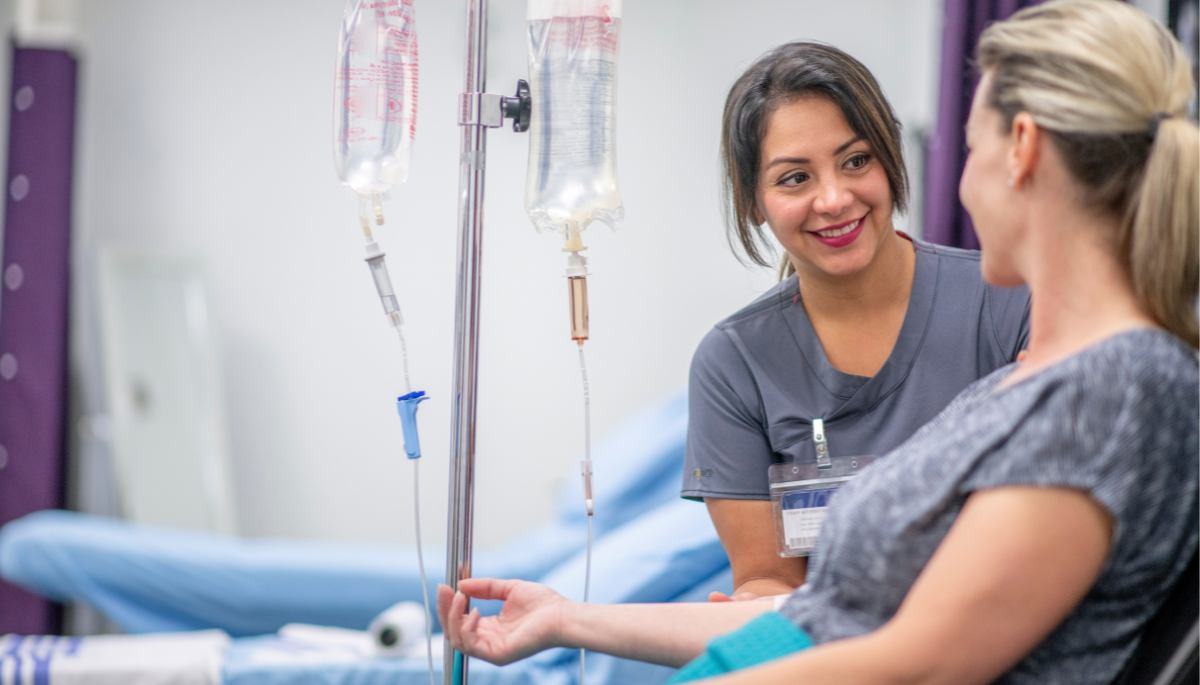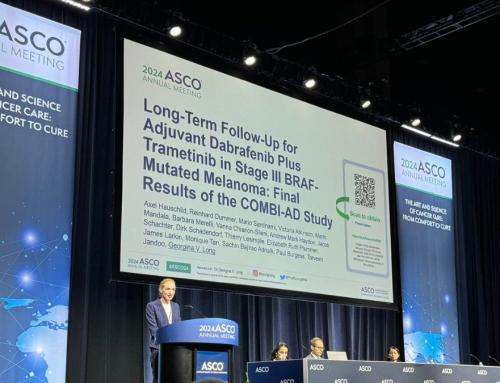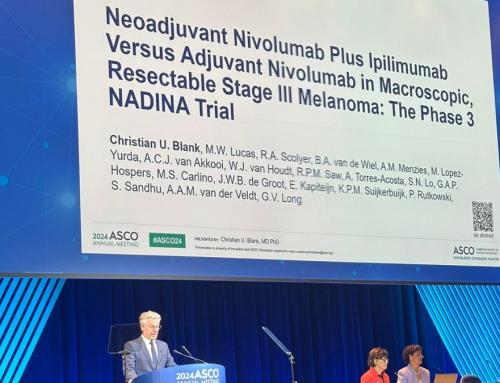Immunotherapy after surgery proven effective in reducing disease spread in high risk early stage patients.
In a breakthrough which looks set to change clinical practice globally, drug therapy after surgery has proven effective in reducing disease spread in high risk early stage melanoma patients.
Melanoma Institute Australia clinicians and patients played a critical role in the international clinical trial which involved 160 treatment centres and hospitals across 16 countries.
The ground-breaking results, published in The Lancet, showed immunotherapy pembrolizumab given after surgery to high risk Stage II melanoma patients resulted in significant reduction in the risk of disease recurrence or death.
It is the first randomised, placebo-controlled, phase 3 study to report a significant reduction in the risk of disease recurrence or death with an anti-PD-1 or anti-PD-L1 therapy in patients with completely resected, high risk Stage II melanoma.
Melanoma Institute Australia Co-Medical Director and study author, Professor Georgina Long AO, said the findings would change clinical practice globally.
‘These results are transformative, and will change the face of melanoma treatment around the world and save many thousands of lives,’ Professor Long said
‘Pembrolizumab looks likely to become standard treatment for early stage melanoma patients who have had their localised disease removed by surgery but are deemed at high risk of their disease spreading to distant organs.’
‘This immunotherapy basically mops up any melanoma cells which may have escaped, and reduces the risk of them depositing around the body in organs including the brain, lungs and liver,’ fellow Co-Medical Director and study author, Professor Richard Scolyer AO added.
‘We are effectively preventing these high risk early stage patients from progressing to advanced disease, which is critical in our mission to reach zero deaths from melanoma this decade.’
The two-year KEYNOTE-716 trial involved 976 high risk early stage melanoma patients who had undergone surgery to have their primary disease removed. They were randomly assigned to pembrolizumab (n=487) or placebo (n=489).
At median follow-up of 20·9 months, 72 (15%) patients in the pembrolizumab group and 115 (24%) in the placebo group had disease recurrence or had died.
The study concluded that pembrolizumab as adjuvant (after surgery) therapy for up to approximately one year for Stage IIB or IIC melanoma resulted in a significant reduction in the risk of disease recurrence or death versus placebo, with a manageable safety profile. Overall survival data is still to come.
‘We already know that pembrolizumab prolongs progression-free and overall survival in advanced melanoma patients, as well as those whose disease has already spread to their lymph nodes,’ Professor Long said. ‘This trial shows it is also a gamechanger for high risk early stage patients.’
‘Next step is assessment by the Therapeutic Goods Administration for this to become standard treatment for these high risk Stage II patients in Australia,’ Professor Scolyer added.
Access paper in The Lancet here: Pembrolizumab versus placebo as adjuvant therapy in completely resected stage IIB or IIC melanoma (KEYNOTE-716): a randomised, double-blind, phase 3 trial






Leave A Comment